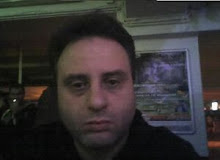Add chickenpox and shingles to the increasing number of immunosuppressed patients who have HIV and AIDS, and it becomes easily understandable why we count a great impact of herpes infections and why aggressive resarches are developed by the medical world to find a way to cure herpes.
HSV1 and HSV2 - the culprits for oral and genital herpes
Oral Herpes
Oral herpes affects face and especially the mouth area. Herpes type 1 (HSV1) is the most usual factor causing oral herpes. However, herpes type 2 (HSV2) may also provoke oral herpes infections. In conclusion, either HSV1 or HSV2 could be responsible for oral herpes.
Outbreaks may arise in just 5 to 10 days after the initial infection. Symptoms consist in painful blisters around the mouth, often together with cold or fever, hence the term “cold sores" or “fever blisters". Immune system is a key factor in finding a way to cure herpes. When the individual is stressed or the immune system is weakened, the virus crosses the ganglia and reactivates on the skin, causing a crisis.
Genital Herpes
For less obvious reasons, HSV-2 seems to affect the genital tract and is therefore the most common motive of genital herpes. However, HSV-1 can also act in the genital region and induce genital herpes. So, once again, either HSV-1 or HSV-2 may be the cause for genital herpes.
When the condition erupts on the surface of the skin, causing an outbreak, usual signs are inflamed blisters or ulcers. As the infection is generated by the either HSV-1 or HSV-2, lesions resemble cold sores. The first outbreak commonly reveals its aggressive presence 4 to 7 days after the initial HSV contamination.
In females, outbreaks occur on or near the vulva, labia, clitoris, pubis, or anus. In males, herpes wounds may arise anywhere on the penis, scrotum, or around the anus. Outbreaks usually also imply pain, itching, or burning. Some people experience enlarged lymph nodes, muscle pain, and fatigue.
Also there are persons for which prodrome is present before a crisis. This is a tingling, itching, or painful sensation that occurs prior to an outbreak. Prodrome symptoms may manifest themselves for several days or for few hours. Use of an antiviral treatment (oral or topical) during prodrome is known to decrease the duration of an outbreak, and it may even abort the eruption for some persons.
Unfortunately, no reliable and validated way to cure herpes is known. Use of a condom is accepted as one of the most reliable methods to prevent virus migration. However, effective treatments are available which can reduce the frequency and severity of outbreaks and stop virus from multiplying. All these allow the contaminated persons to keep the condition under control.
Depending the study you trust, well over 90% of the US population will test positive for HSV virus, so the need of finding a way to cure herpes is understandable.
Acyclovir is the most popular herpes medicine. However, the appearance of aciclovir-resistant virus strains has generated the need to develop new effective antiviral agents.
New anti-herpetic chemical drugs were developed, but presenting significant adverse effects when consumed, plus that HSV has again developed drug resistance to these new medicine.
As new chemical drug options seem to not represent a solution, alternative antiviral compounds are being considered with great interest. Recent scientific studies of medicinal antiviral plant extracts reveal very promising results, and have generated a new method to cure herpes.
Studies of these antiviral extracts prove that lots of these compounds provoke significant anti-herpetic activity. Several actually inactivate HSV with great effectiveness. These antiviral extracts represent new effective treatment options for therapeutic use.
For more detailed and reliable info visit my site by clicking cure herpes link in this sentence.
